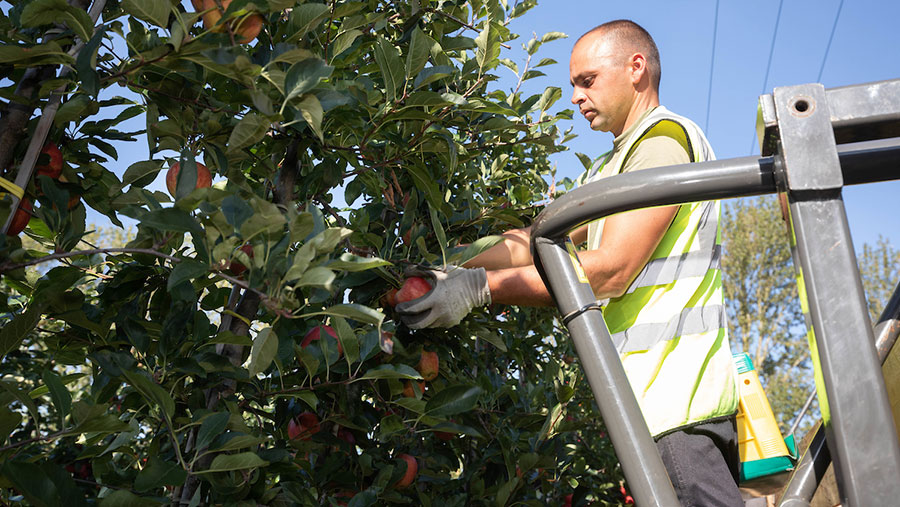Horticulture sector warns House of Lords of market failure
 © Tim Scrivener
© Tim Scrivener Market failure is an issue for fruit and vegetables, with disparities between what the shopper is paying and farmgate prices, Ali Capper told a House of Lords horticultural sector committee.
Ms Capper, chairwoman of British Apples and Pears who also sits on the NFU Horticulture Board, said this issue deserves attention from government.
An imbalance of power between major retailers and producers, rising costs and labour issues were all outlined as major challenges facing the UK horticultural sector at the hearing on 20 April.
See also: Horticulture faces labour, costs and wage inflation crisis
The House of Lords committee is looking into the challenges facing the horticultural sector, as well as ways to support it, with chairman Lord Redesdale due to publish a report on it later this year.
Jack Ward, chief executive of the British Growers Association, said there’s insufficient money across the supply chain to cover cost increases and many growers are scaling back production.
“It’s a great sadness, we all know we should be producing and consuming more fruit and veg, but actually what’s happening on the ground is the situation is going backwards because there is just insufficient money to cover the costs of growing, supplying and retailing fresh produce,” he added.
“Over Easter, they were retailing carrots at 19p/kg and they cost 45-50p/kg to produce.”
The UK produces 2bn apples each year, according to Ms Capper, which is only enough for 30 apples per person.
UK apples account for 40% of all apples sold at retail in the UK, however, with support this figure could be closer to 60%.
Apples are often stored for between six to 12 months to provide availability year-round, and energy costs are up by 133% for the apple industry, Ms Capper added.
“Our costs as an industry have gone up by 23%, and yet the returns coming back to farmers has gone up by just 0.8%,” she said.
Seasonal workers
A lack of availability of seasonal workers and restrictions on the amount of time workers are allowed to be in the UK for is creating further issues for growers, the panel warned.
Ms Capper said labour costs represent 40% of total costs for apple growers, 50% for soft-fruit businesses, and 70% for asparagus growers.
The labour-intensive sector is estimated to need about 70,000-80,000 seasonal workers each year to fill demand.
The current scheme operates on an annual basis and is renewed each year; however, the panel suggested a five-year rolling scheme for seasonal workers could be more efficient.
Mike Norris, a large ornamental grower in West Sussex, said the Seasonal Worker Scheme currently gives workers a six-month visa.
By changing it to a nine-month visa, it would make it more attractive for workers. They could also then work across horticultural sectors picking different crops to suit seasons.
Mr Norris added that availability of accommodation for seasonal labour is proving a real challenge.
